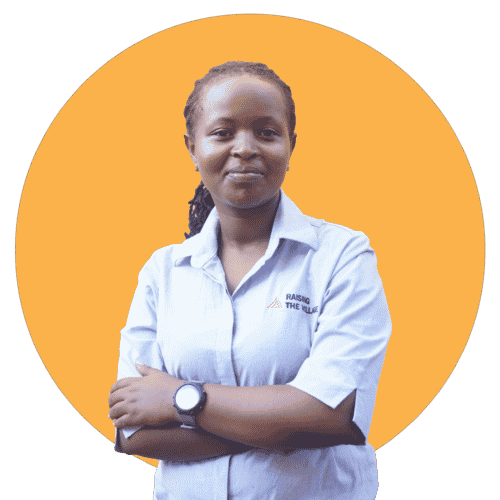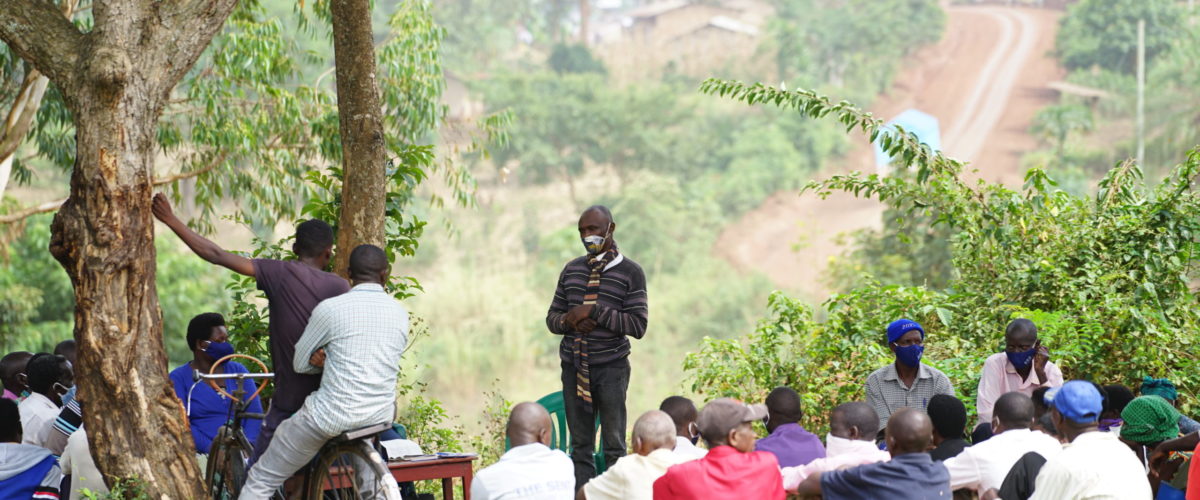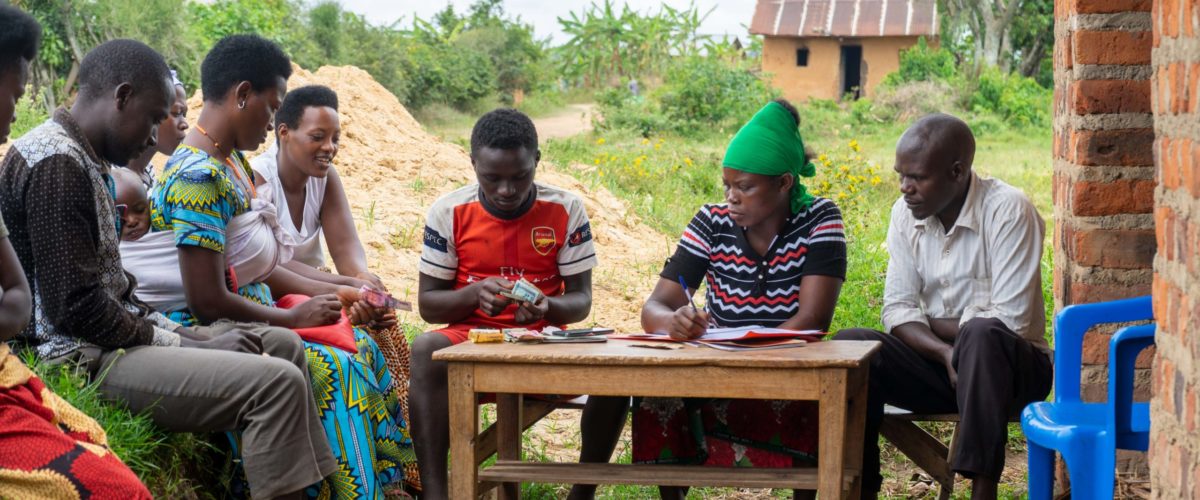Spotlight On: Supporting Youth Out of Ultra-Poverty

In this Q&A with RTV’s Senior Project Officer Beninah Byarugaba, learn how we partner with Ugandan youth as they unlock their potential, upgrade their skills, and improve their livelihoods, so they can break the cycle of ultra-poverty.
Tell us about yourself and your role at Raising The Village. How long have you worked with youth?
I’ve worked with youth and other vulnerable groups for about six years, four of which I have spent working as a Senior Project Officer with Raising The Village. I support and monitor project implementation and facilitate community engagement. It has been great to support youth, to whom I belong.
From your experience, what are the main challenges that youth face in last-mile communities?
To begin with, a high percentage of children and youth drop out of schools as a result of the long distance between schools and households, along with parents’ inability to afford school fees. Cultural stigmas also hinder girls’ development, from early marriages to depriving them from education and training opportunities. Those in low-income families particularly suffer from the lack of menstrual hygiene kits, which forces them to stay at home.
Often limited to small-scale agriculture, youths’ income sources are minimal, and they lack access to factors of production. With few employment options in their villages, many seek out white collar jobs in urban centers, but lack the required skills. This distracts them from investing in businesses that can help them gain economic freedom. The few who try to launch their own business can’t access loans or capital. Additionally, young community members are often excluded from leadership roles, which deprives them from representation and inclusion in the decision making process.

Why does RTV focus on youth as an individual group? How are their needs different from others?
Challenged by the mentioned factors, youth are a vulnerable group. They are the future generation, so empowering them means a better future and economy for the whole community. Additionally, we’ve seen that given their motivation, youths sustain projects well and for long, once they have proper guidance, tools and resources. This is why we prioritize partnering with them to uplift their standards of living through different approaches.
Tell us more about this. How does RTV help youth?
We address youth’s needs on several levels. While some areas of focus cut across other groups, others are tailored for them:
- Promoting health: We build the community’s awareness and capacity on best hygienic practices. During periodic health talks, RTV focuses on preventing risks threatening youth’s wellbeing. This includes HIV/AIDS, family planning, reproductive health, and other issues affecting youth. When needed, we refer participants to relevant health institutions for further support.
- Ensuring food security: RTV provides quality seeds, agricultural training, and tools. While food security is important for all, it impacts youth differently. With their potential to generate income, improve skills, and launch businesses, securing youths’ basic needs helps lift entire communities out of ultra-poverty.
- Securing water: Youth are often tasked with fetching water for domestic use. Long trips to fetch contaminated water previously consumed their time and risked their health. By constructing protected water sources, RTV ensures that households can access safe, clean water, and youth have time and space to engage in income generation.
- Financial liberation: RTV trains youths on mindset change, financial literacy, and establishing VSLAs to facilitate access to low-interest loans. By highlighting their potential and that of their resources, those trainings encourage them to launch their own initiatives, such as livestock investments or trading.
- Leadership opportunities: To ensure their involvement in decision making, we design our programs with a focus on youth. In addition to youth-only VSLAs, a minimum of 20% of leadership positions in every group are reserved for young members.
- Capacity building: RTV focuses on training programs to address skill gaps in last-mile communities. In addition to our standardized training programs conducted across partner communities, our team prioritizes the local youth’s interests. For example, we are currently training youth in Mparo cluster on making liquid soap, as they identified it as an income-generating activity of popular demand in their community.

What are the key changes you see in young people’s lives as they move through the Secure, Improve, Sustain program?
Youth in RTV partner communities have made significant progress in different aspects:
- Decline in domestic violence cases among young couples: The overall impact of our holistic program (income generation, food security, and health services, among others) promotes a peaceful home environment.
- Collective ownership: For example, the shared responsibility for the piggery project activities has kept the youth engaged and the project sustained. Some use the revenues from selling offspring to buy scholastic materials to pursue their education alongside their livestock activities.
- Positive mindset towards agriculture: Youth now grow high amounts of vegetables, hence improving their livelihoods and growing more resilient in their villages. As farming is the main source of income in Uganda, this improves the future of the country’s economy.
- Leadership skills: They gain public speaking skills and hold leadership positions. As a result, they establish credibility in their communities and start taking up other positions at district levels. Some elected youth councils have been mentored by us, and we at RTV are immensely proud of the transformation they’ve made!
What’s your expected outlook on these youth’s future?
I see that the future of the youth in our partner communities is definitely brighter with our holistic program. Breaking out of ultra-poverty is definitely possible – we see it happen. We can’t always build the future for the youth, but we can build our youth for the future.

